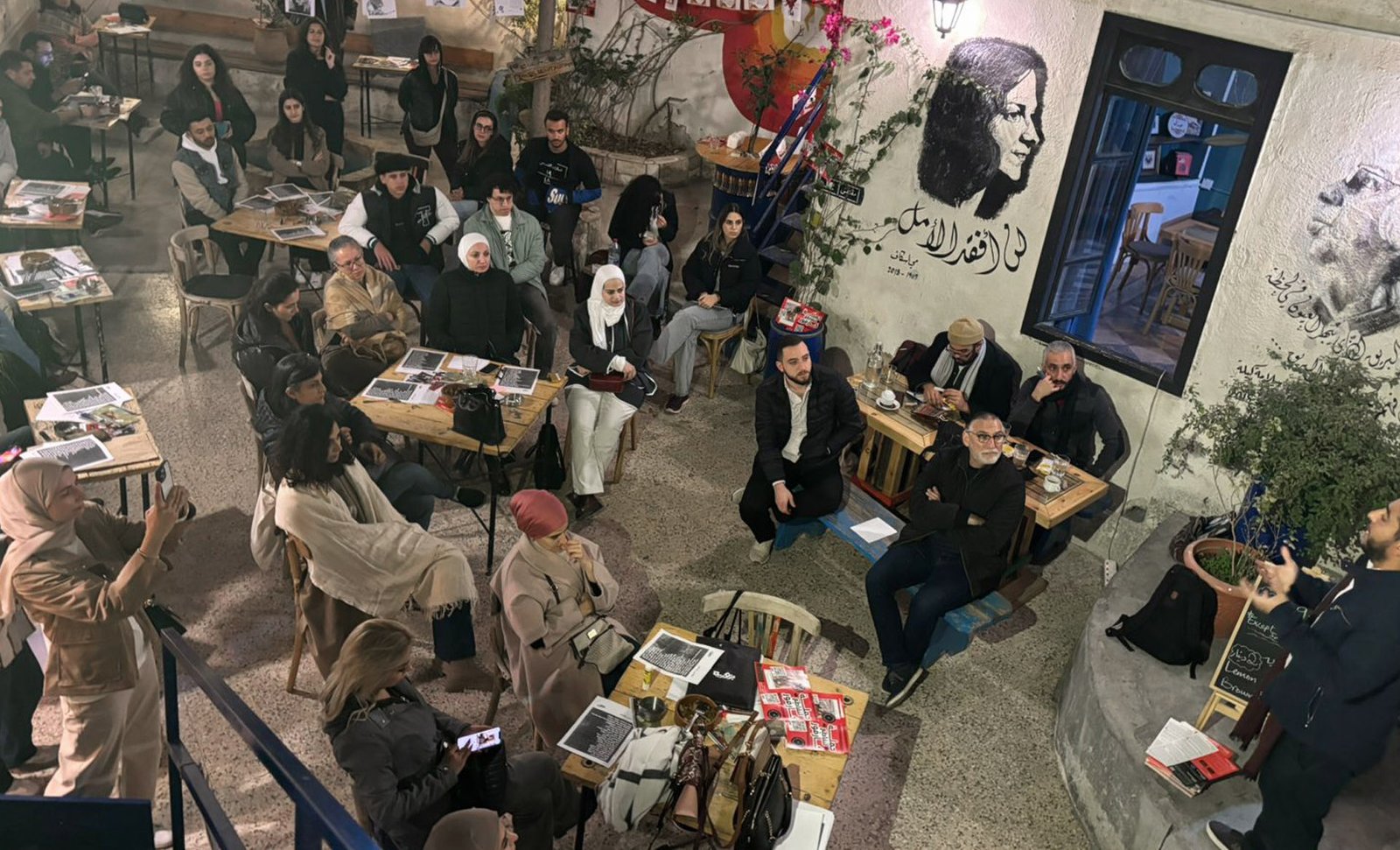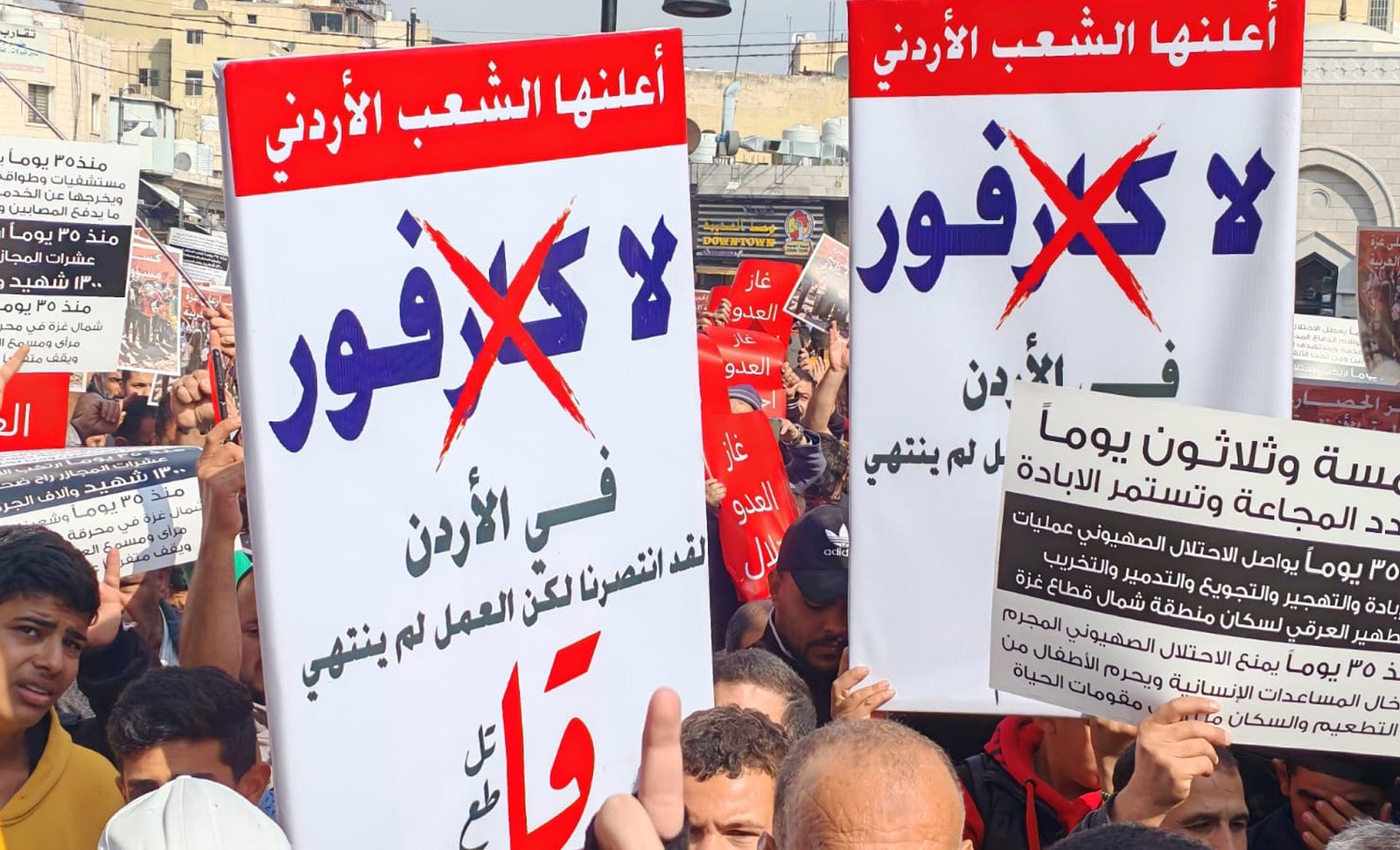A highlight by Noor Dissi, Campaigns Coach
The “Mish Shari” campaign, launched by BDS Jordan (Boycott, Divestment, Sanctions) movement in Jordan, stands as a powerful testament to the strength of grassroots organizing. As part of a broader national boycott movement, the campaign was one of many initiatives led by different groups working toward the common goal of ending economic complicity with the Israeli occupation.
The strategic targeting of Carrefour as a complicit brand did not start in 2024—it was part of ongoing efforts by BDS Jordan and boycott groups that had long identified the retailer’s ties to the Israeli occupation. However, the genocide in Gaza ignited a surge in boycott action, as people across Jordan sought tangible ways to resist and assert their power. This wave of mass mobilization, building on years of boycott groundwork, created the conditions for escalated, sustained organizing that ultimately led to a major win. In November 2024, Majid Al Futtaim Group, Carrefour’s exclusive franchisee in Jordan, announced the closure of all Carrefour branches across the country.
What made this campaign stand out was its strategic organizing and innovative tactics that went beyond traditional media awareness efforts. Local teams worked within neighborhoods to mobilize support, spreading community pledges in governorates where people committed to boycotting Carrefour. These actions were accompanied by creative forms of resistance, including symbolic marathons and public refusals by local suppliers who stopped providing their products to Carrefour branches in solidarity with the campaign. This collective effort, driven by BDS Jordan’s leadership and the coordinated work of grassroots organizers, ultimately led to the campaign’s success—becoming a model for effective grassroots action and proof of the power of people-led movements.
A People-Powered Campaign
In a moment where boycott movements in Jordan gained momentum, with different groups leading actions across various sectors, BDS Jordan played a key role in structuring and sustaining the movement’s strategic direction. The campaign’s ability to integrate effective organizing strategies with impactful grassroots action was central to its success.
Ahel was proud to play a role in supporting BDS Jordan to sharpen the campaign’s approach through coaching, working with the campaign’s core team to develop effective, results-driven tactics, while ensuring mechanisms for tracking progress and measuring impact. However, the success of “Mish Shari” belongs entirely to BDS Jordan and the countless organizers, volunteers, and communities who mobilized and sustained this effort.
“The ‘Mish Shari’ campaign was an inspiring and deeply significant experience because it embodied the unity of the Jordanian people, working together as one in a level of organization rarely seen in recent years. This major win reaffirms that grassroots organizing is a powerful weapon that can be wielded against the occupation to achieve real results. Among the most effective tactics was the role of local teams—each neighborhood worked in sync, creating a coordinated effort to lead the boycott rankings in their areas.”
– Wajd Al-Shamayleh, a leader in BDS Jordan
Beyond Jordan: A Ripple Effect
The boycott movement’s success in pushing Carrefour out of Jordan sparked a wave of action across the region. In Oman, local groups launched a similar campaign, while in Morocco, grassroots efforts intensified to hold the retailer accountable for its support of the Israeli occupation. This ripple effect proves how people-powered wins inspire and mobilize others, strengthening the regional and global boycott movement.
Lessons in Persistence and the Power of Small, Organized Steps
Despite skepticism and narratives of doubt that surrounded “Mish Shari” from its inception—even after its success—the campaign proved that change begins with small, well-organized steps led by those most affected by injustice. The major win was not just about achieving a single campaign demand but about rebuilding trust in people’s ability to create change through collective organizing and action.
The challenges remain, but this campaign marks an inspiring milestone in a long road of collective struggle—one that reminds us that real change does not happen overnight. It is the result of consistent organizing, creative strategies, and unwavering determination, proving once again that people’s power is the force that drives movements forward.






